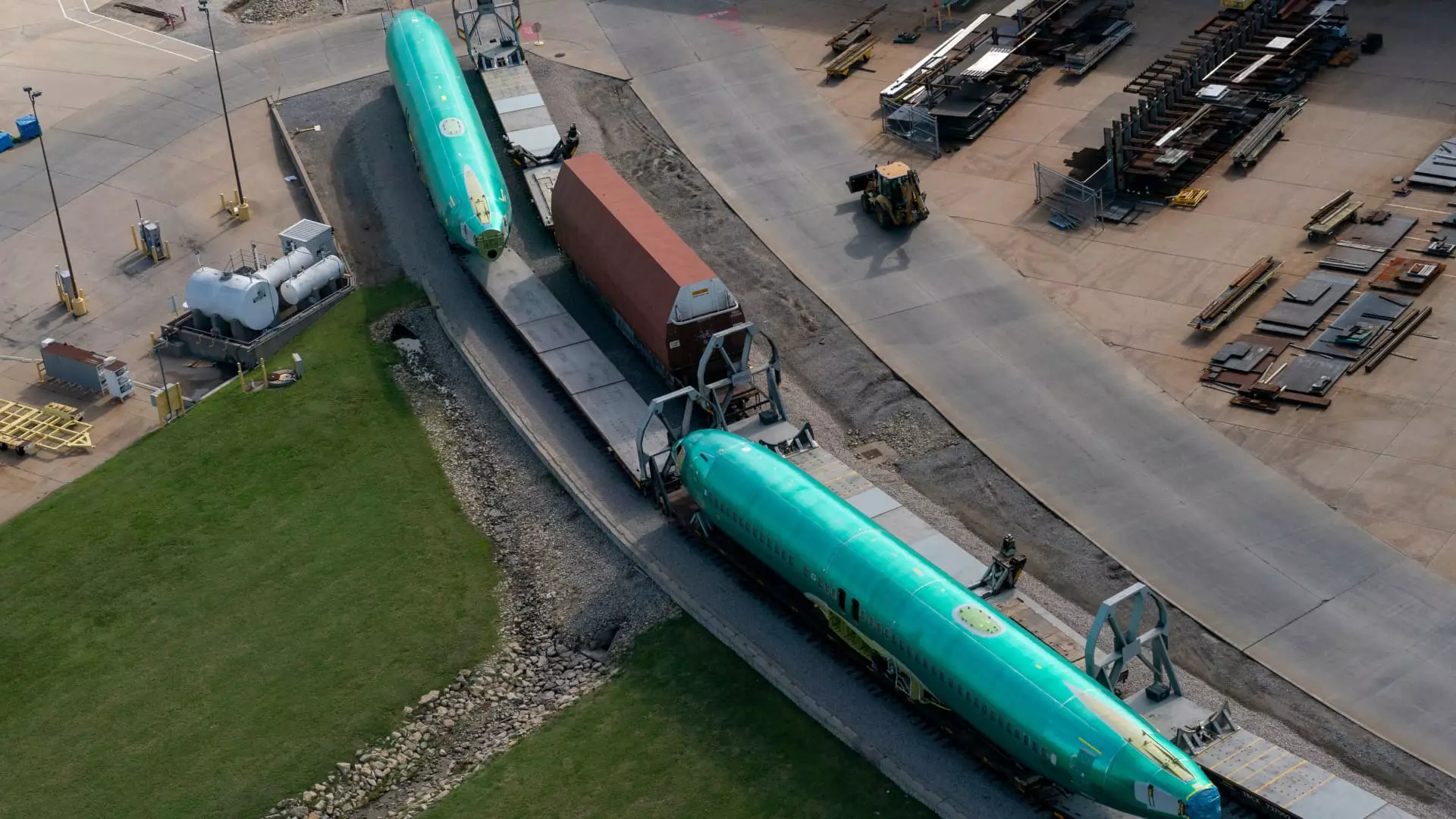In the wake of ongoing labor unrest, Spirit AeroSystems is grappling with the prospect of further furloughs or layoffs, highlighting the vulnerable state of the aerospace industry. A spokesman from Spirit disclosed to CNBC that if the strike by Boeing machinists surpasses November 25, the company may be forced to make tough personnel decisions affecting hundreds of employees. This potential move illuminates the broader ramifications of labor disputes on associated suppliers, which are already feeling the strain.
Boeing’s machinists, who have been striking for nearly six weeks, emphatically rejected a new labor contract proposal, a decision that has far-reaching consequences. With a significant 64% voting against it, the work stoppage continues to halt production lines, particularly in Boeing’s Seattle-based facilities. The current halt particularly impacts the production of Boeing’s flagship aircraft, including the 737 Max, further endangering the supply chain interconnected with Spirit AeroSystems.
Spirit AeroSystems was already planning to furlough approximately 700 workers at its Wichita, Kansas, plant. These furloughs, intended to last for three weeks, are a direct response to the ongoing disruptions in Boeing’s operations. Anticipating that the labor strikes may linger, Spirit is contemplating additional workforce reductions, although detailed decisions are yet to be finalized. The company’s spokesperson, Joe Buccino, affirmed the uncertainty surrounding these considerations, underscoring the precarious nature of the situation.
The decision to pause workforce operations reflects an urgent necessity to manage resources effectively amidst an unstable economic environment. Spirit’s situation exemplifies how the prolonged strike creates a ripple effect throughout the aerospace supply chain, compelling companies to contemplate workforce adjustments that could have long-lasting implications.
Spirit’s challenges are not isolated; they resonate throughout the aerospace sector. Suppliers have been reticent to enact significant layoffs due to hard-earned recoveries achieved post-COVID-19. The pandemic necessitated aggressive recruiting campaigns as companies struggled to rebuild their teams in response to sudden increases in demand. Now, as operations come to a halt, the fear of repeat setbacks looms, paralyzing decision-making processes in many supplier organizations.
Boeing finds itself at a crossroads amid a cash crisis and production halts. With more than 32,000 machinists participating in the strike across various locations, the situation is dire. Meanwhile, plans for Boeing’s acquisition of Spirit AeroSystems hang in the balance, with expectations of finalization looming in the upcoming year. The CEO of Boeing, Kelly Ortberg, recognizes the urgency of resolving the labor dispute and is pushing for a swift return to the negotiating table.
Outlook and Implications
The current environment reflects the precarious interdependencies within the aerospace industry. Spirit AeroSystems’ contemplation of further cuts underscores not only immediate labor challenges but also the overarching vulnerabilities of supply chains. As Boeing seeks to stabilize its operations and address employee concerns, its actions may ultimately dictate the future trajectory of the entire aerospace sector. Both companies are caught in a cycle where labor disputes and operational disruptions exacerbate existing challenges, creating a complex landscape that demands strategic foresight and quick resolution.

